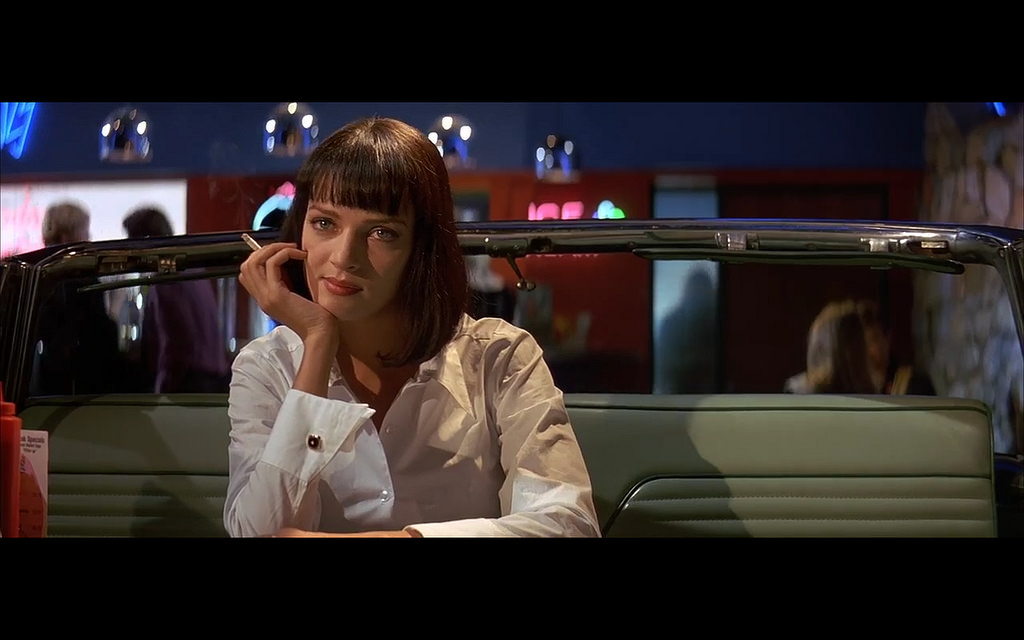
Pulp Fiction defined careers, a genre, and an era. With a plot that balanced three intertwining narratives more successfully than any film before or since, its praise is well warranted. Director Quentin Tarantino broke onto the film scene with 1992’s Reservoir Dogs, but Pulp Fiction, released two years later, got Hollywood’s attention like a shot of adrenaline to the heart.
Tarantino, in some ways, has been working to top his signature sophomore effort for his entire career. He’s had varying levels of success in doing so but hasn’t yet surpassed it. Much of the cast, including former-superstar John Travolta, have been living in Pulp Fiction’s long shadow since the movie’s release. Still, we all peak at some point, and the rest of us can only dream of having a peak as high as Pulp Fiction.
Pulp Fiction impacted a generation of screenwriters like few movies can. Infamously, there was a point in time when you couldn’t enter a college dormitory without seeing the film’s iconic poster adorning a wall. It’s tough to pinpoint exactly what made Pulp Fiction a pop culture sensation, but it’s probably a mixture of the film’s precise vision, sharp-witted-but-resonant dialogue, and rhythmic pace.
Pulp Fiction follows a series of characters based in the seedy Los Angeles underground. Contract killers Jules Winnfield (Samuel L. Jackson) and Vincent Vega (Travolta) open the film on the hunt for a briefcase belonging to their boss, Marsellus Wallace (Ving Rhames). Marsellus is involved in bribing another key player, boxer Butch Coolidge (Bruce Willis), to throw his next bout. Uma Thurman also has a starring role as Marsellus’s wife, Mia Wallace. Later, Marsellus asks Vincent to take Mia on a date, leading to the film’s best commentary on the politics of relationships and workplace hierarchy.
While the film wouldn’t be what it is without tremendous performances by its leads, Harvey Keitel, Tim Roth, Amanda Plummer, and Christopher Walken all shine in ensemble roles. In fact, Pulp Fiction is best described as an ensemble film. This is one of the greatest strengths of the script, penned by Tarantino and Roger Avary. Tarantino and Avary allowed the dialogue to do the heavy lifting, an innovative approach that has led to several copycat acts in the time since the film’s release.
Many of Hollywood’s most recognizable movies (Star Wars, Jaws, and The Wizard of Oz) all run under two hours and 15 minutes. While Pulp Fiction isn’t presented in such a bite-sized package, it is more digestible than, say, Lawrence of Arabia. Part of the movie’s charm is its ability to toe the line between serious film™ and approachable indie. Tarantino has been walking that line for his entire career, eventually creating his own niche corner of the movie business. It’s a corner that leaves some feeling alienated and others right at home.
Tarantino’s movies can feel overly masculine, grotesque, and in the worst cases, Tarantino imitating Tarantino, accentuating his most idiosyncratic qualities. Pulp Fiction came at a precocious time of Tarantino’s career, though. It represents his attention to detail, his one-of-a-kind sense of humor, his love for film, and his unrivaled characters. Pulp Fiction stands the test of time and will for decades to come.

